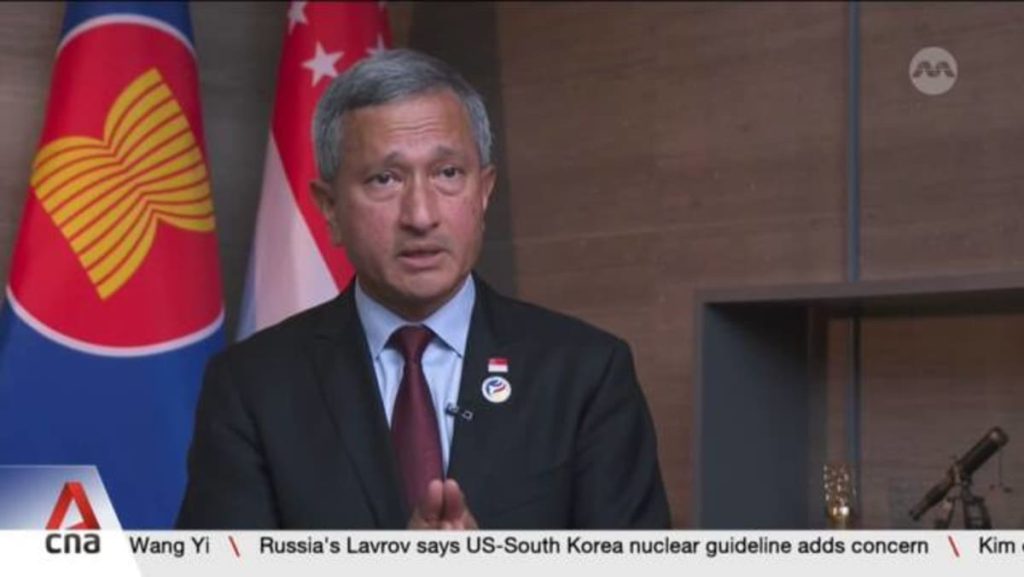Dr. Balakrishnan emphasized the importance of ASEAN maintaining its unity and centrality in the face of increasing strategic challenges in the global landscape. With conflicts raging in Europe and the Middle East and the growing rivalry between the US and China, ASEAN must be vigilant in not getting caught in any strategic traps that could undermine its unity and neutrality. The Minister’s comments come at a time when ASEAN is facing multiple challenges, including territorial disputes in the South China Sea and growing tensions between major powers in the region.
The ongoing conflicts in Europe and the Middle East have significant implications for ASEAN, as they could potentially have a spillover effect on the region and its security. The rise of extremism and terrorism in these regions poses a threat to ASEAN countries, and it is crucial for the organization to remain vigilant and work together to address these challenges effectively. Dr. Balakrishnan’s remarks underscore the need for ASEAN to strengthen its cooperation with international partners and enhance its capacity to address security threats in the region.
One of the key challenges facing ASEAN is the US-China rivalry and its impact on regional stability. The growing competition between the two superpowers has raised concerns about the potential for conflict in the region, particularly in the South China Sea. ASEAN plays a crucial role in promoting dialogue and cooperation between the US and China, and it is important for the organization to maintain its neutrality and facilitate peaceful resolution of disputes. Dr. Balakrishnan highlighted the need for ASEAN to remain united in the face of these challenges and to play a constructive role in promoting regional stability.
The territorial disputes in the South China Sea have emerged as a major source of tension in the region, with competing claims by China and several ASEAN countries leading to increased militarization and confrontations. ASEAN has been working towards a peaceful resolution of these disputes through multilateral mechanisms, such as the Declaration on the Conduct of Parties in the South China Sea (DOC) and the ongoing negotiations on a Code of Conduct (COC). Dr. Balakrishnan stressed the importance of upholding international law and resolving disputes through peaceful means, and he reiterated ASEAN’s commitment to promoting stability and security in the region.
In light of these challenges, ASEAN must also focus on enhancing its economic resilience and promoting sustainable development in the region. The organization has been working towards economic integration through initiatives such as the ASEAN Economic Community (AEC) and the Regional Comprehensive Economic Partnership (RCEP). Dr. Balakrishnan highlighted the importance of ASEAN member states working together to address common challenges and capitalize on the opportunities presented by regional integration. He emphasized the need for ASEAN to remain united and cohesive in the face of external pressures and to continue advancing its economic agenda for the benefit of its people.
Overall, Dr. Balakrishnan’s assessment underscores the complex strategic environment in which ASEAN operates and the importance of the organization remaining united and vigilant in the face of increasing challenges. By staying true to its principles of unity, centrality, and neutrality, ASEAN can continue to play a constructive role in promoting peace and stability in the region. The organization must continue to work towards resolving territorial disputes, managing external pressures, and advancing economic integration to ensure its continued relevance and effectiveness in the evolving global landscape.


